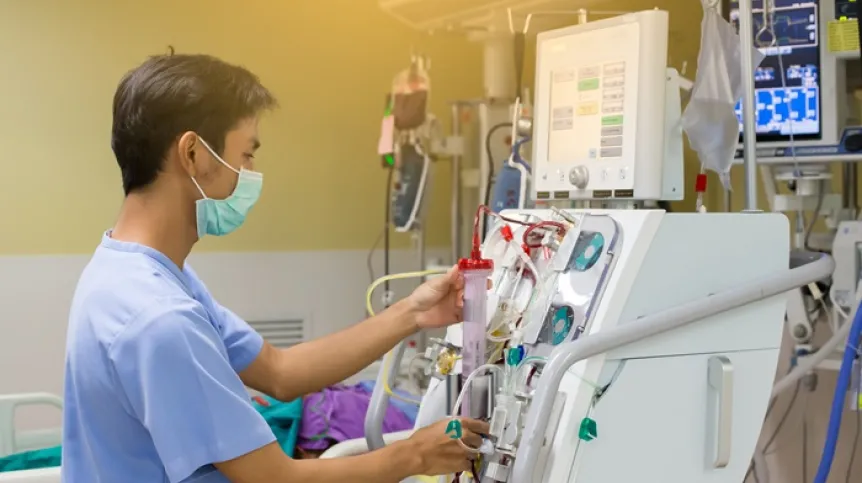
Scientists from the University of Gdańsk have developed and patented a diagnostic test capable of detecting early complications of diabetes through a non-invasive urine analysis, the university has announced.
The innovative method measures the activity of two proteolytic enzymes in urine using chemical compounds, allowing for the early detection of complications such as diabetic nephropathy, a common but often undiagnosed consequence of diabetes.
According to University of Gdańsk spokesperson Magdalena Nieczuja-Goniszewska, the invention can be used to diagnose diabetes complications at a very early stage.
The research team from the University of Gdańsk includes Professor Adam Lesner, who led the project, Professor Magdalena Wysocka, PhD, and Natalia Gruba, PhD.
The work was conducted in close cooperation with scientists from the Institute of Experimental and Clinical Medicine of the Polish Academy of Sciences: Professor Agnieszka Piwkowska, Dorota Rogacka, PhD, and Irena Audzeyenka, PhD.
"The research, which would not have been possible without Professor Agnieszka Piwkowska's team from the Institute of Experimental and Clinical Medicine PAS – the initiator of the work on ADAM enzymes, concerns the diagnosis of both diabetes and its early complications, such as diabetic nephropathy, which, if detected early enough, is a reversible disease," said Professor Adam Lesner.
He added: ”This means that patients can be cured or the process of kidney damage caused by diabetes can be stopped.
"Currently, the diagnosis is made based on symptoms or accidentally, during a routine urine test. In many situations, it is already too late for effective treatment, and the alternatives are dialysis or organ transplantation. In this context, early detection of such diabetes complications is extremely important and necessary.”
Emphasizing the advantages of the new method over conventional diagnostic techniques, Professor Lester continued: "Unlike the commonly used method of diagnosing diabetes by measuring plasma glucose levels, which is invasive and susceptible to external factors, the test developed at the University of Gdańsk enables the detection of diabetes complications not only quickly but also non-invasively.”
The process of protecting the intellectual property of the invention was managed by the University of Gdańsk Technology Transfer Centre, led by Director Katarzyna Gronowska. (PAP)
kszy/ agt/













